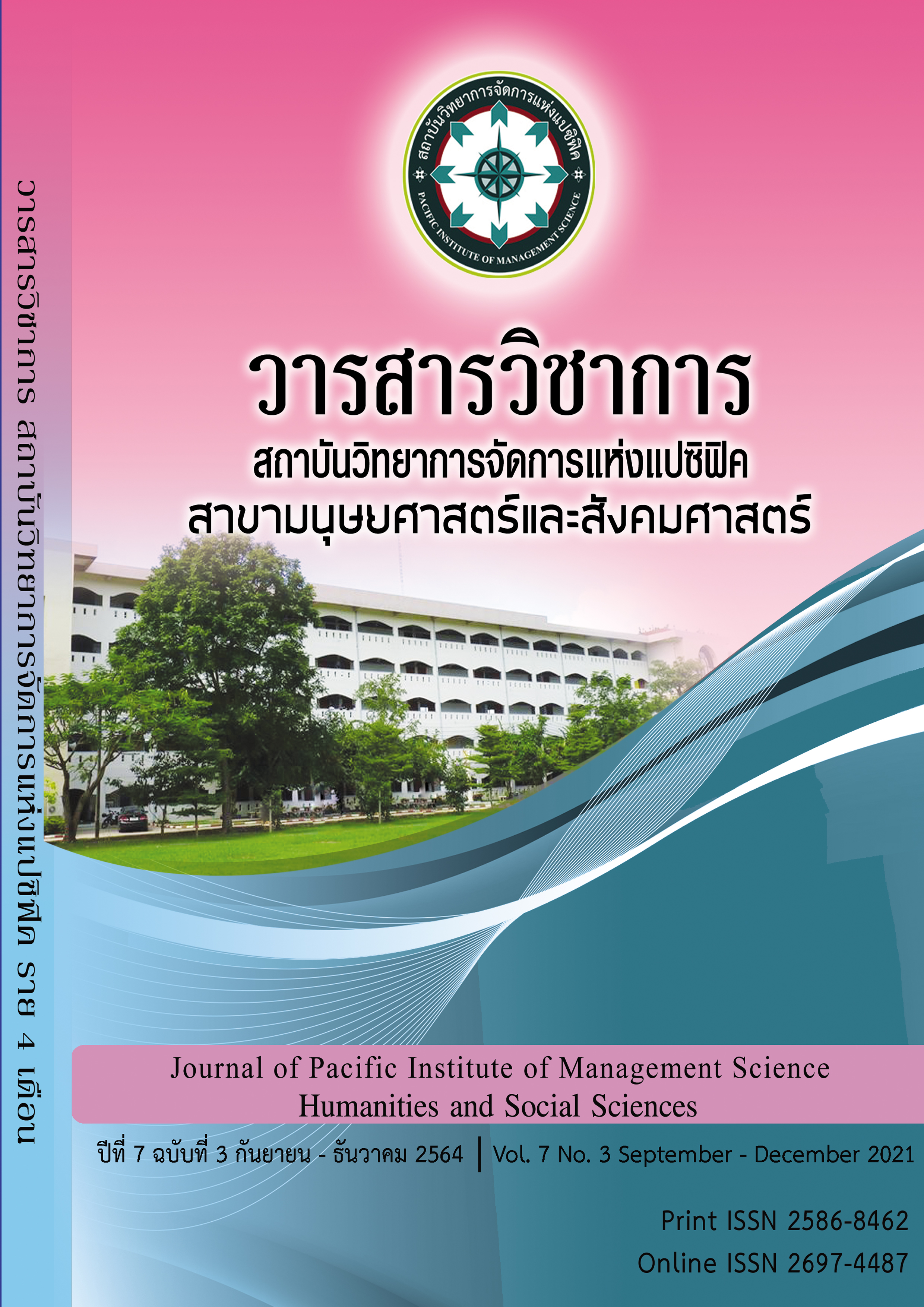Legal Measures for Offenders Control and Detention by the State Power with Electronic Devices.
Keywords:
detention, criminal offenders, electronic devicesAbstract
This objective of this research was to study legal measures to detention of the criminal offenders by State authority with electronic devices which considered from the problem (1) during the investigation (2) during the trial (3) during the custody of the person imprisoned (4) during the prosecution of the accused by the public prosecutor (5) temporary release with insurance or without insurance This research was a qualitative research by studying from documents, concepts and theory of legal textbooks.
The research result revealed that since Criminal Procedure Code comes into force control of the criminal offenders with electronic devices and the objective had not yet achieved due to (1)
the inquiry official has no independent power to consider for a temporary release. (2) during the court trial, the court must ask the inquiry official, public prosecutor or the plaintiff first (3) while being imprisoned, the punished person has no right to request (4) the prosecutor's organization Act B.E. 2553, Article 21. The prosecutor is not free to consider the case. (5) regulations of the president of the Supreme court that temporary release request. Cases with a high prison rate of up to 10 years must be guaranteed.
Therefore have to amend the Criminal Procedure Code, section 109, paragraph one, "During the investigation, if the detainee is detained by an inquiry official, the accused has the right to request a temporary release to the inquiry official. " Paragraph two, "In case the defendant is prosecuted for an offense and is under the consideration of the court, if there is a request for temporary release from the court during the hearing and the court may exercise its discretion to search for facts about the defendant's history, social background, the condition of the offense and the circumstances of the case that accompanying the request for temporary release". Section 89/2 ,paragraph one "In the case of necessity when the prosecutor , prison commander or the official responsible for the arrest warrant or the inmate requests, or the court deems appropriate, who has received a prison sentence of not less than one-third of the penalty as specified in the subpoena or not less than ten years, in the case of imprisonment for more than thirty years or life imprisonment by any means ....
References
กุณฑิกา ช่วยพนัง. (2555). การใช้มาตรการอื่นแทนการลงโทษจำคุกระยะสั้น. คณะนิติศาสตร์
จุฬาลงกรณ์มหาวิทยาลัย.
ธานี วรภัทร์. (2556). หลักกฎหมายว่าด้วยการบังคับโทษจำคุก (พิมพ์ครั้งที่ 3). กรุงเทพฯ:
วิญญูชน.
นิพนธ์ ใจสำราญ. การปล่อยชั่วคราวผู้ต้องหาหรือจําเลยระหว่างการดําเนินคดีในศาลยุติธรรมไทย.
สํานักงานศาลรัฐธรรมนูญ. (ออนไลน์ 24 มิถุนายน 2563)
รัฐธรรมนูญแห่งราชอาณาจักรไทย พุทธศักราช 2560
ประมวลกฎหมายวิธีพิจารณาความอาญา.
พระราชบัญญัติแก้ไขเพิ่มเติมประมวลกฎหมายอาญา (ฉบับที่ 25) พ.ศ. 2559.
พระราชบัญญัติราชทัณฑ์ พ.ศ.2560.
พระราชบัญญัติองค์กรอัยการและพนักงานอัยการ พ.ศ. 2553.
ข้อบังคับของประธานศาลฎีกาว่าด้วยหลักเกณฑ์วิธีการและเงื่อนไขเกี่ยวกับการเรียกประกันหรือ
หลักประกันในการปล่อยชั่วคราวผู้ต้องหาหรือจำเลยในคดีอาญา พ.ศ. 2548 และที่แก้ไขเพิ่มเติม.
Downloads
Published
Issue
Section
License
Copyright (c) 2022 Pacific Institute of Management Science

This work is licensed under a Creative Commons Attribution-NonCommercial-NoDerivatives 4.0 International License.
บทความที่ได้รับการตีพิมพ์เป็นลิขสิทธิ์ของ สถาบันวิทยาการจัดการแห่งแปซิฟิค
ข้อความที่ปรากฏในบทความแต่ละเรื่องในวารสารวิชาการเล่มนี้เป็นความคิดเห็นส่วนตัวของผู้เขียนแต่ละท่านไม่เกี่ยวข้องกับสถาบันวิทยาการจัดการแห่งแปซิฟิค และคณาจารย์ท่านอื่นๆในสถาบันฯ แต่อย่างใด ความรับผิดชอบองค์ประกอบทั้งหมดของบทความแต่ละเรื่องเป็นของผู้เขียนแต่ละท่าน หากมีความผิดพลาดใดๆ ผู้เขียนแต่ละท่านจะรับผิดชอบบทความของตนเองแต่ผู้เดียว







